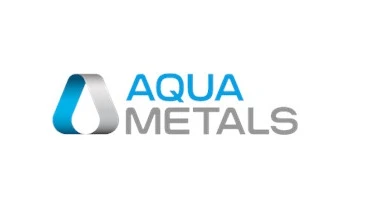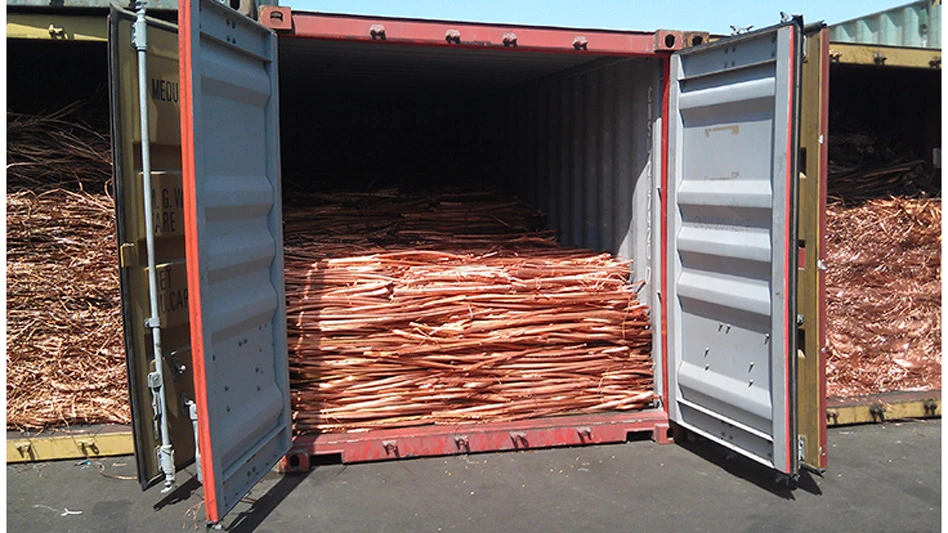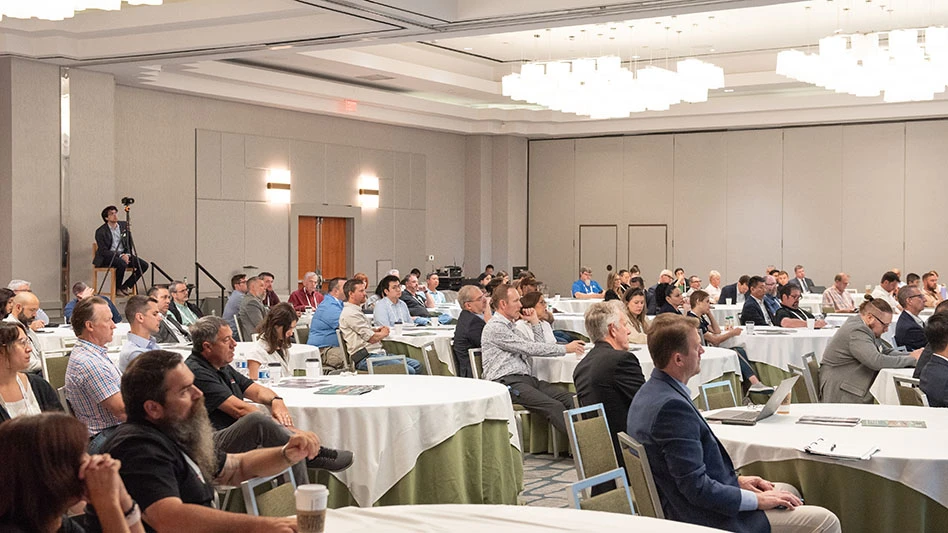
Recycling Today archives
How2Recycle, the North American packaging recyclability labeling system, has announced it is upgrading the eligibility of rigid polypropylene (PP) tubs, bottles, jugs and jars from "check locally" to "widely recyclable" in the United States.
The group says it was provided data from The Recycling Partnership's Polypropylene Recycling Coalition as well as other industry investments and notes it is "confident this progression in eligibility continues to be aligned with the Federal Trade Commission's Green Guides."
"The efforts of the Polypropylene Recycling Coalition are a great example of the impact that can be made with collaborative action focused on supporting the full recycling system and we are honored to have been in an advisory role since its inception," How2Recycle Director Caroline Cox says in a statement announcing the upgrade.
She adds, "As rigid polypropylene access, sortation and end markets are on an upward trend across the U.S., we are excited to upgrade this packaging format. ... Thanks to the strength and efficacy of the national data provided, How2Recycle is confident that this change in eligibility continues to be in line with federal law," and notes, however, the entire value chain should continue investing in improving the recyclability of all materials and packaging formats.
The milestone comes as the Polypropylene Recycling Coalition marks its two-year anniversary. Launched in July 2020, The Recycling Partnership, based in Washington, formed the coalition to bring together stakeholders across the PP value chain to improve recovery and recycling in the U.S. and further develop end markets for recycling PP.
The organization says since the launch of the coalition, it has awarded 24 grants totaling $6.7 million to support sorting improvements and community education. According to the Partnership, curbside access to PP recycling will improve for approximately 8 percent of households—about 20 million people—and increase the amount of PP recovered by an estimated 25 million pounds annually.
The Recycling Partnership says it used the Sustainable Packaging Coalition's "2020/2021 Centralized Study on Availability of Recycling" for a prior baseline which indicated rigid PP containers as having a 59 percent recycling access rate. The organizations say they leveraged the Partnership's National Recycling Database to determine the current U.S. access rate of 65 percent and assessed the growth and strength of domestic end markets for PP.
"Achieving success for challenged materials is not a narrative often heard in our industry," The Recycling Partnership CEO Keefe Harrison says. "It was a mere two years ago when we acknowledged the challenges polypropylene recycling was facing and its uncertain future. In forming the Polypropylene Recycling Coalition, we committed to leaning in and taking action in support of the material, to push ourselves and the industry to a more circular future."
Harrison continues, "The power of collaboration across the value chain can be seen through this substantial systemwide shift for polypropylene. The precedent we are setting for materials, coalitions and innovations is exciting and hopeful."
However, according to Greenpeace USA, based in Washington, less than 30 percent of Americans have access to recycling systems that accept PP and the group says the vast majority of PP packaging will end up in landfills and incinerators regardless of if it's put in recycling bins.
"Being able to put something in a recycling bin is not the same as recycling," Greenpeace USA Oceans Campaign Director John Hocevar says. "Many cities allow people to put things in bins that are not locally recyclable. Pretending that polypropylene No. 5 plastics, like yogurt cups, are recyclable only drives down the effectiveness of recycling materials like aluminum and paper."
Hocevar calls the upgrade "greenwashing" and says the global south, in particular, faces real consequences from the announcement. "Misleading the public about the recyclability of throwaway plastic packaging means that more of our waste will be exported to poor countries," he adds. "It also deflects attention from real solutions to the plastic pollution crisis. We have to phase out single-use plastic and invest in reuse, refill and package-free approaches."
Greenpeace published a "Circular Claims Fall Flat: Comprehensive U.S. Survey of Plastics Recyclability" report in 2020, which showed PP only is accepted by 53 percent of U.S. material recovery facilities (MRFs) and said "acceptance of the PP No. 5 tub by a MRF is not proof that the PP No. 5 tub will actually be recycled into a new product."
The report continues, "Compounding the problem of recycling postconsumer PP No. 5 plastic items is that there are a limited number of plastic reprocessing facilities that will buy postconsumer PP No. 5 plastic," with analysis showing less than 5 percent domestic reprocessing capacity for PP postconsumer (PCR) waste. The facilities are primarily in the southern and eastern U.S. and, according to Greenpeace, trucking collected PP thousands of miles from the West Coast or the Northeast to Alabama—home of the largest U.S. processor of PP—is "problematic from a cost or carbon emissions perspective."
The full report can be accessed here.
How2Recycle says other rigid PP packaging formats, including beverage cups, remain at the "check locally" recyclability status, and the group says it is pursuing additional data regarding the access to recycling and end markets of PP beverage cups to determine whether these packages should be upgraded in the future.
The group also notes that each How2Recycle label is backed by scientifically credible data so that the general public can rely on a consistent, standardized recycling labeling system run by a 501c3 environmental nonprofit to help them recycle more accurately.
Latest from Recycling Today
- USTR announces phased measures designed to address China’s shipbuilding dominance
- APR, RecyClass release partnership progress report
- Clearpoint Recycling, Enviroo sign PET supply contract
- Invista expanding ISCC Plus certification program
- Redwood partnership targets recycling of medium-format batteries
- Enfinite forms Hazardous & Specialty Waste Management Council
- Combined DRS, EPR legislation introduced in Rhode Island
- Eureka Recycling starts up newly upgraded MRF





